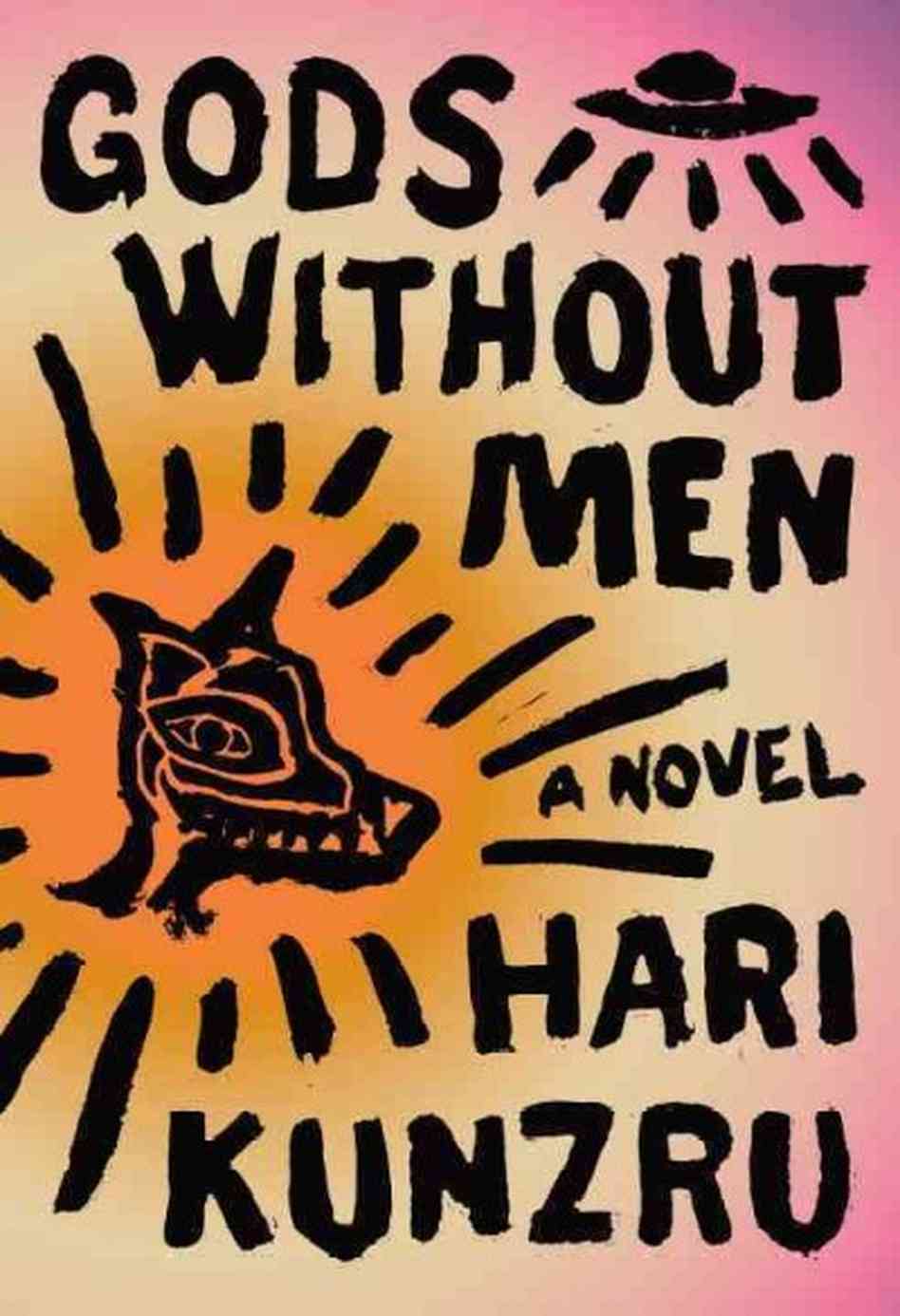21 May / Gods without Men by Hari Kunzru

 Most of the time, I love stories that require fitting together seemingly disjointed pieces; my brain feels delightfully tickled with the challenge. And, of Hari Kunzru‘s novels – Gods being his fourth and latest – I much appreciated both The Impressionist and Transmission [no, I’ve not yet read My Revolutions but expect to eventually].
Most of the time, I love stories that require fitting together seemingly disjointed pieces; my brain feels delightfully tickled with the challenge. And, of Hari Kunzru‘s novels – Gods being his fourth and latest – I much appreciated both The Impressionist and Transmission [no, I’ve not yet read My Revolutions but expect to eventually].
Oh, but that ‘but’ … Perhaps the aging cerebrum is getting tired, perhaps I should have read the page with my own eyeballs instead of having the sprawling, multi-centuried novel read to me by a phalanx of seasoned narrators (I admit I so enjoyed hearing Rupert Degas‘ voice again, I immediately downloaded a Haruki Murakami title, only to find Degas isn’t its reader, alas). And yet as much as I appreciated the high puzzling-factor of Gods, the final reaction is a sighing disappointment.
Central to the many narrative strands is a family and a location: the Matharu family includes a Sikh American mathematically-inclined Wall Street-er, his culturally Jewish Caucasian American wife, and their autistic young son who goes missing near the recurring location, called the Pinnacles somewhere in the Mojave Desert (not to be confused with Pinnacles National Monument further north near Salinas, California). [I don’t mean to digress (too far), but did anyone else think it rather unfathomable that caring parents would leave their young sleeping child strapped in his stroller totally alone in a national park while they wander off to explore?]
In between explicating Jaz Matharu’s development – the expectations placed on him as the eldest son of a devout immigrant Punjabi family, his MIT career, the “‘cultural differences'” of his out-marriage, his challenging only child, his moral misgivings at work, the nightmare of his missing son – Kunzru dovetails numerous story fragments across time, continents, and cultures. Interrupting (sometimes enhancing) the family drama are 18th-century Padres on mysterious missions to a new world desert, a deranged late 19th-century silver miner about to implode, a decorated World War I veteran with a hideously burnt face desperately trying to preserve a Native language in 1920 who will (not) resurface in 1942, a young engineer who builds a bunker to welcome UFOs in 1947 who possibly reappears as the Guide during a 1958 supernatural convention when another child disappears, other-world cult followers who scatter by 1971, a young (Goth!) Iraqi immigrant teenager hired to participate in simulated scenarios of soldiers invading Iraqi homes on a 2008 desert military base, and still more …!
Not that a neat, easy ending should be expected out of this whirling maelstrom, but after almost 400 pages (or 14.5 audible hours), too many questions feel unanswered and narrative possibilities scattered. To quote Kunzru’s final sentence, “Here ends the redacted passage,” felt all too accurate – that indeed, things vital and necessary had somehow been censored, obscured, removed, and ultimately lost.
Readers: Adult
Published: 2012
